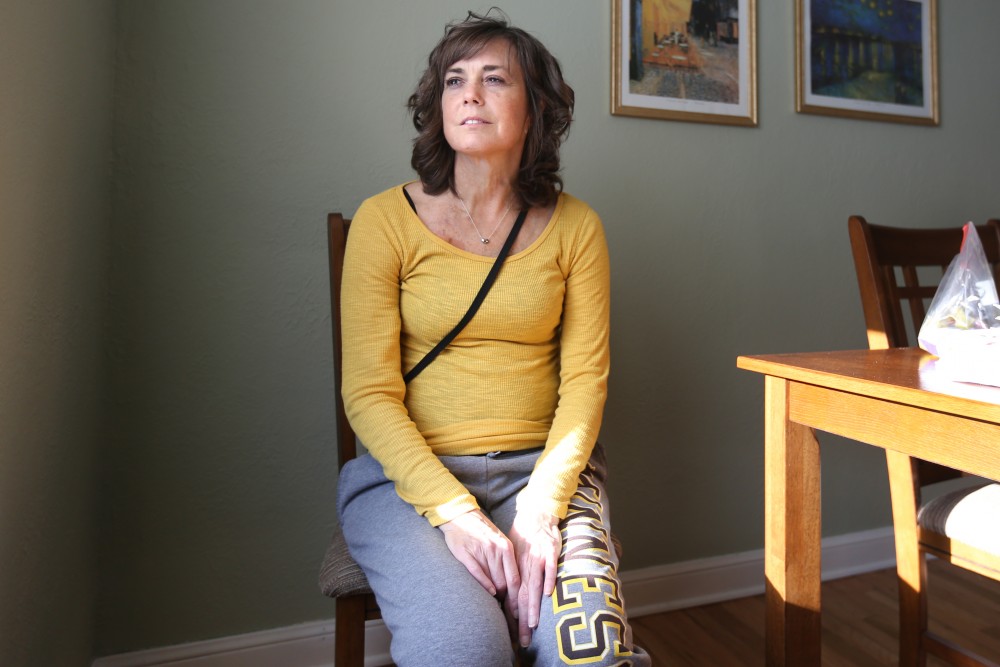While vacationing in Naples, Florida in 2017, University of Minnesota alumna and long-time employee Susan Markgraf met Kelly, her brother’s friend. The two became Facebook friends, but Markgraf didn’t imagine the connection would lead to anything.
Then a few months later, Kelly — who asked to be referenced by her first name for privacy reasons — offered to give Markgraf a kidney after seeing her Facebook post seeking a kidney donor.
Though Kelly wasn’t a match for Markgraf, her participation in the University’s Paired Exchange Program, which connects to multiple nation-wide kidney exchange programs, made it possible for Markgraf to get a kidney transplant on March 26. A willing donor who isn’t a match to their recipient can pair up with a viable pair who is in the same situation and “swap” kidneys. The program finds pairs who are compatible matches. This process is often faster than waiting for a cadaver kidney on a transplant list, which can take up to 10 years.
Markgraf — who has worked at the University for 20 years as an assistant, internal auditor and now as a neurosurgeon’s executive assistant — has compromised organ function due to diabetes complications.
She has undergone organ transplants and started dialysis in August 2017 when her kidneys started to fail, and she decided to look for a kidney donor by posting on social media and by advertising in a local newspaper. She preferred to have a donor kidney rather than one from a cadaver because they are often much healthier.
She received 30 responses from individuals willing to be tested to see if they were viable candidates for kidney donation. Kelly was one of them.
“It just took my breath away,” Markgraf said.
Kelly said once she saw the Facebook post, she couldn’t scroll past it. A few years ago, her husband’s kidney was removed due to kidney cancer, so she knew living with one kidney was not a problem.
“If I’m walking along a river and I’ve got a life vest on my shoulder and there’s somebody drowning, of course you’re going to throw it to them. I’m walking. I don’t need it. Here, have mine,” Kelly said.
Because of Markgraf’s previous kidney transplants, her body developed antibodies that made it almost impossible for her to find a match, said Dr. Ty Dunn, associate University professor of surgery and Markgraf’s surgeon.
Kelly wasn’t a match for Markgraf, so she participated in the Paired Exchange Program. Markgraf enrolled in PEP! in July 2016, and through this program, Kelly donated her kidney to someone else so that Markgraf could receive a compatible kidney from a participant.
Patients who wait for a kidney, like Markgraf, often have to go on dialysis because their kidneys aren’t functioning. Dialysis performs some of the tasks done by healthy kidneys, like removing waste and salt, according to the National Kidney Foundation. Dialysis, transplant and hospice are the only treatments for kidney failure, Dunn said.
“[Dialysis] is horrible. Only 30 percent of people are alive [after] five years,” she said.
Markgraf received her kidney from a woman in the U.S., and Kelly donated hers to a woman from Denmark, making this the world’s sixth global kidney exchange, Dunn said.
“Don’t get discouraged if you aren’t a match to the person you want to give to, because it’s as if you’re giving to that person,” Kelly said.
Markgraf will be in recovery for about eight weeks. For the next two weeks, she will be closely monitored to see if her body accepts the kidney.
“She’s an incredible lady, and I think she is probably one of my favorite patients. For me, it was a real honor that she asked me to do her transplant,” Dunn said.














